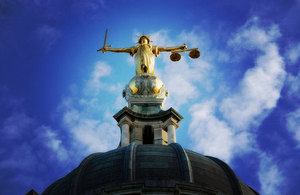Courts to recognise good intentions of volunteers and small busineses
Volunteers, community groups and 'good deed doers' have been given legal reassurance that courts will take account of the fact they have been acting to help society if something goes wrong and they end up having to defend themselves against being sued.

New measures in the Social Action, Responsibility and Heroism (SARAH) Bill have received Royal Assent today and have become law.
The changes have been designed to help volunteers, community groups, businesses and people who step in heroically to help in dangerous circumstances – following years of concerns that people were being put off from doing simple good deeds for fear of legal action if something went wrong.
The act has been welcomed by groups, including St John Ambulance and the National Council for Voluntary Organisations, who have said they believe it will help to reduce the barriers which affect people’s willingness to participate in worthwhile activities and step forward to help.
Justice Secretary Chris Grayling said:
Not only have responsible small businesses been stifled by unnecessary insurance costs and the fear of being sued but volunteers have been deterred from taking part in socially beneficial activities and brave people have been put off from helping someone in trouble.
This much needed change to the law will encourage responsible employers to stand up to speculative and opportunistic claims, and will help reassure good deed doers who come to the aid of those in difficulty.
This act restores a balance to counter the health and safety culture, and provides valuable reassurance to people that courts will take full account of the context of their actions if someone is sued after acting in a socially beneficial way.
The act, which received Royal Assent today, also provides greater protection to small business owners and others who face speculative or spurious claims in negligence, even if they have taken a responsible approach to safety training and procedures.
The new law means that judges must consider three additional factors when assessing liability in a negligence claim:
- If the person being sued was doing something for ‘the benefit of society’ – to take account of the fact people were doing a good deed like volunteering, running an event or trip, or helping out by clearing snow.
- If they had been acting in a ‘predominantly responsible way’ – to make sure the court will give consideration to the fact that people may have taken care when organising an activity but, in spite of their best efforts, an accident has happened.
- If they were ‘intervening in an emergency’ – if they stepped in to help someone in danger but something went wrong.
The government is now putting in arrangements for commencing the act.
Notes to editors:
- For further information contact the Ministry of Justice press office on 0203 334 3536. Follow us @MoJPress